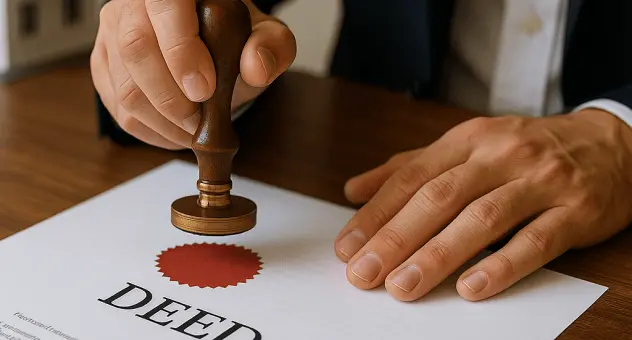What is Deed?
Deeds are legal documents that transfer ownership of property from one party to another. They are commonly used in real estate transactions. Explore our state-specific templates for your needs.
Deeds are essential documents for property ownership transfer. Our attorney-drafted templates are quick and easy to complete.


Get everything needed for owner-financed real estate transactions in one place with this essential package of legal forms.
Get everything needed for owner-financed real estate transactions in one place with this essential package of legal forms.
Secure a purchase agreement for real estate, allowing buyers to pay over time while occupying the property.
Transfer ownership of property between individuals easily and clearly, ensuring the rights of both parties.
Use this document to transfer property ownership between individuals or spouses, specifying how ownership is shared.
Create a life estate deed that allows property control while simplifying future inheritance matters.
Create a deed enabling an individual to transfer property to multiple people while retaining control during their lifetime.
Transfer property ownership between individuals effectively with a clearly structured legal document.
Use this document to formally transfer property rights between partners, ensuring both parties hold title effectively.
Secure real estate transfers while retaining control during your lifetime with this unique deed option.
Easily transfer property ownership with a legal document designed for gifts between individuals in Florida.
Deeds must be signed and often notarized.
Different types of deeds serve various purposes in property transactions.
The seller's title history affects the type of deed used.
Deeds can include conditions or restrictions on property use.
All parties in a transaction should understand the deed's implications.
Begin quickly with these steps.
A trust can complement a will, offering benefits like avoiding probate.
Your assets may go through probate, possibly leading to delays and costs.
Review your estate plan regularly, especially after major life changes.
Beneficiary designations can override wills, so ensure they align with your overall plan.
Yes, you can designate separate agents for financial and health matters.








